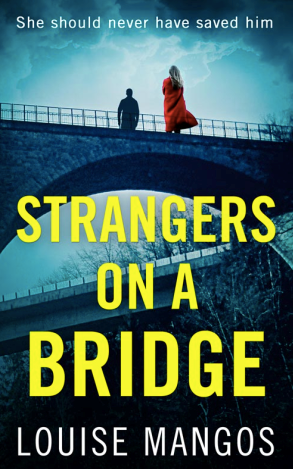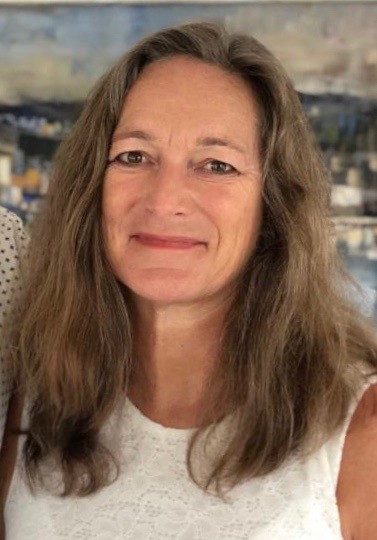Every writer is a reader, and every reader loves a new book: The tactile whisper of a matt cover, the sensuously embossed title, the creamy smoothness of the paper, the smell of the ink, the story to hold and unfold, page-by-page, word-by-word. But when we look at how much the electronic age has taken over our lives, in order to optimise earnings as an author, it is time to also embrace the digital model.

My journey to publication was initially on a long and winding road. I finished the first draft of my debut psychological thriller Strangers on a Bridge several years ago, and at the time had little knowledge of the publishing industry. Armed with my Writers' & Artists' Yearbook, I assumed I would first get an agent, who would in turn find me a publisher. And I thought that process would flow seamlessly.
In my naivety I ignored several factors. There are thousands of budding writers out there, and every day they are finishing full-length works of fiction. Then there are hundreds of agents, looking for the perfect manuscript to suit their taste and what they perceive the market is looking for. Then there are a handful of editors who are looking for the next marketable novel. And until your novel gets through the acquisitions committee at a publishing house, you will not reach your readers. Even for a highly skilled novelist, there is a little luck involved in garnering a traditional publishing deal. And it all takes time. A long time.
Getting an agent isn’t necessarily the answer. I’ve had two agents. The first one represented me although my novel still needed much work. We couldn’t find an editor, so I started writing my second novel. Writing is subjective, and it was a shock to me while I was penning the last chapters of the second novel, to learn that my agent didn’t ‘feel passionate enough about my work’ to represent me any more. We went our separate ways.

I still believed in my first novel, so I re-wrote it, cut vast tracts of rambling narrative and added a dynamic new plot line. Then I entered a couple of competitions. Strangers on a Bridge was a finalist in the Exeter Novel Prize and long listed for the Bath Novel Award, which boosted my confidence and endorsed my belief in my story.
Within days I had an offer from another agent. I was desperate for representation, so I accepted immediately, and the process of submissions to editors started again. Then my agent went on maternity leave, her assistant left the company, and I was once again in limbo, with two books ready for submission. I began to feel disheartened.
I was absently trawling Twitter one day when I came across a tweet from HQ Digital, an imprint of Harper Collins, asking authors to tweet the premise of their novels. This was in the days of 140 character tweets, a real challenge for the economy of words. But I went ahead, and the editorial team immediately asked me to submit the first three chapters and the synopsis of Strangers on a Bridge. I hardly had time to rein in the excitement when within 48 hours I had an offer to publish. After months and months of submitting and rejections, within days of an initial tweet I was holding a contract in my hands.
I had to pinch myself. Most traditional deals mean an author has to often wait two years until publication. The time between the final edits of your work and release date can be interminable. But things happen a lot quicker in the digital world.
Let’s go back to the role of the agent for a moment. An agent will try to get you the best deal, including a significant advance to support you (and your agent!) while you write your second novel. In reality, most mainstream authors will only earn a large enough advance to scrape through a few months’ living expenses.
With a digital publisher, things are significantly different. Most digital contracts, especially for debut authors, don’t come with an advance. The publisher has a lower investment and consequently lower risk. The book may sell at a lower price, but this will quickly translate to a greater number of sales. And with a higher royalty payment, the author sees the financial benefit immediately. Other advantages are a faster lead-time, with changes possible until quite close to publication.
More than half the authors with digital contracts don’t have agents. Why would we pay someone a percentage of our income when there are rights teams within the publishing house striving to sell our translation and film rights?
When I signed my publishing contract, I still dreamed one day of seeing my book in print. So when HQ Digital said they were trialling print-on-demand earlier this year, I was delighted. I wouldn’t be appearing in bookstores or airports, but I was to have my physical book after all, and it could still be delivered to readers through the regular online platforms. This digital first marketing model is proving more and more attractive and profitable for both the publisher and the author.
So the long and winding road to publication has turned into a bit of a sprint finish on the home straight. And after doing a little homework about how the industry works, I decided to put on that last spurt to get to the end a little quicker. If you want a traditional deal, patience is the key. But in the world of digital publishing, the literary tortoise has suddenly been gifted the hare’s momentum.
Louise writes novels, short stories and flash fiction, which have won prizes, placed on shortlists, and been read out on BBC radio. She was runner-up in the W&A short story competition in 2017 with her story Into The Abyss. Her debut psychological thriller Strangers on a Bridge was published by HQDigital (Harper Collins) in July 2018, and the paperback has just been released. You can connect with Louise on Facebook and Twitter @LouiseMangos, or visit her website www.louisemangos.com where there are links to more of her stories. Louise lives in Switzerland with her Kiwi husband and two sons.
Comments